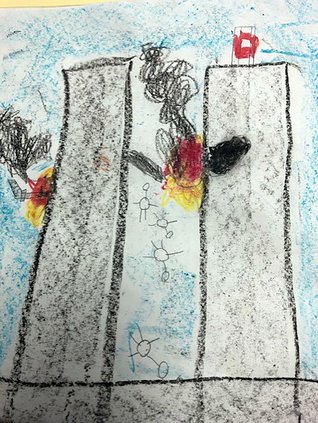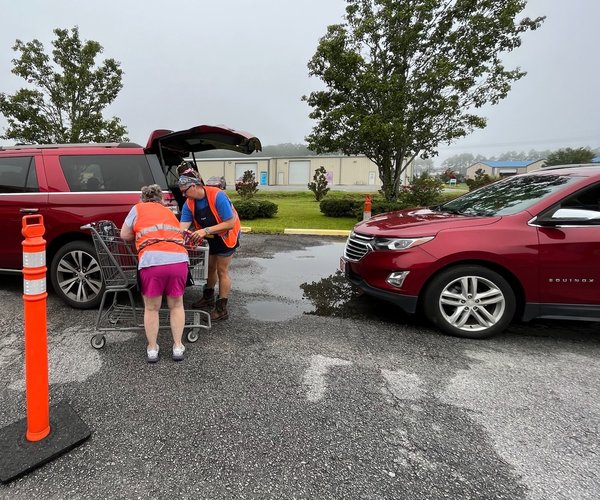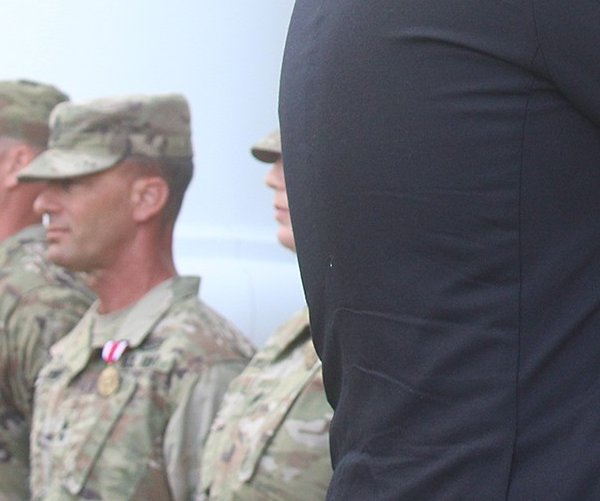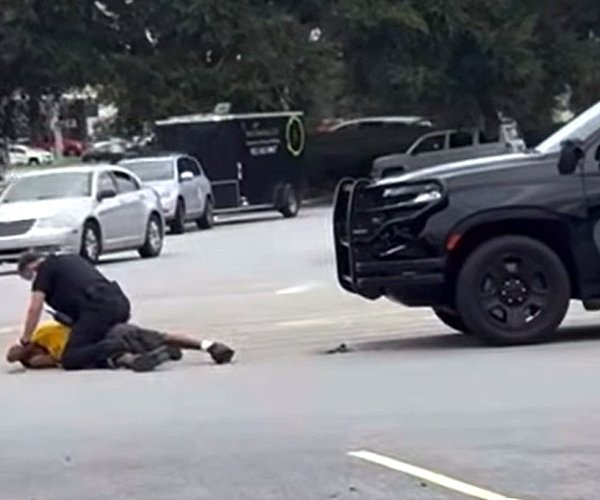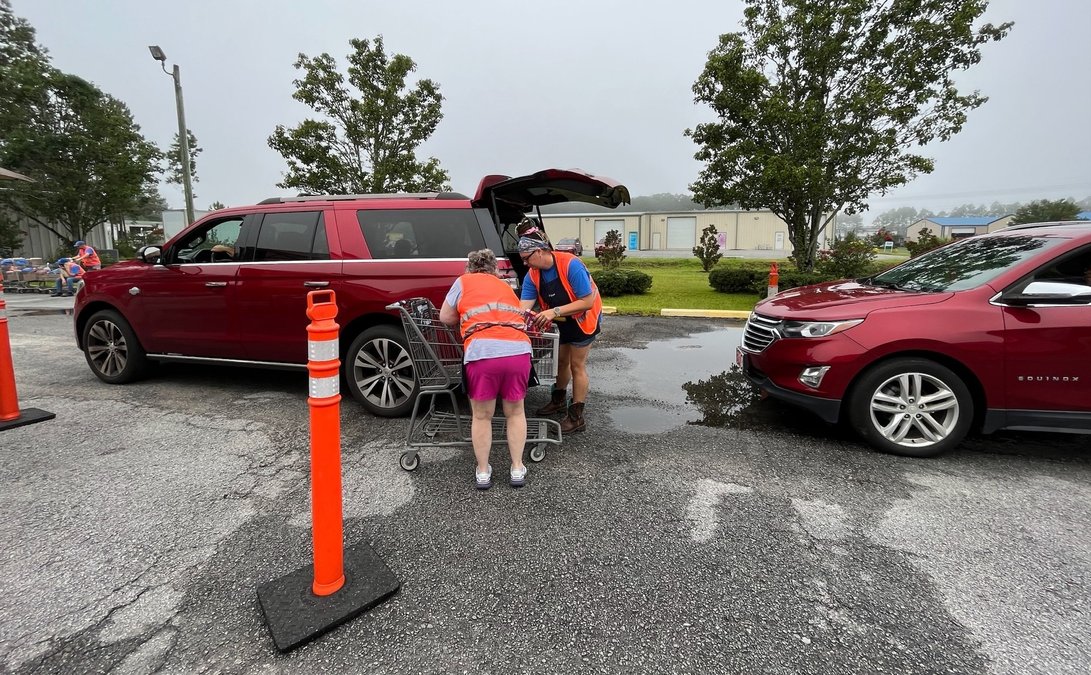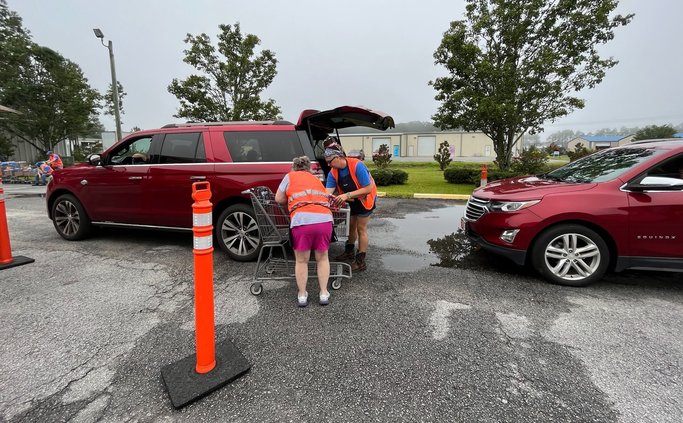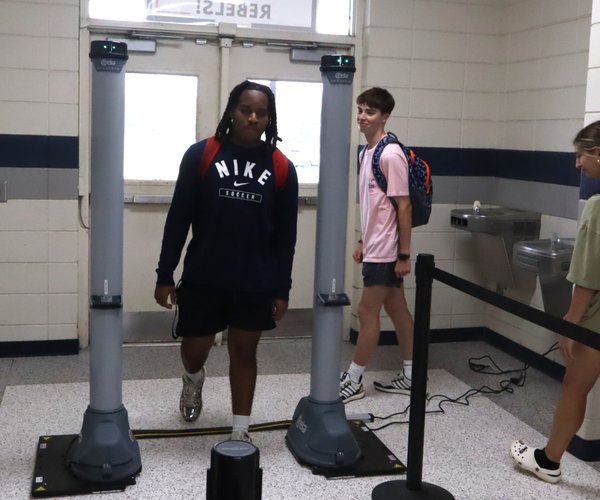I think it was a memory that she didn’t want to forget but she didn’t really want to talk about with small kids because it would lead to questions that were very hard to answer.Clayton Waller
RINCON — The frightening image confined in Clayton Waller’s young mind eventually escaped, making its way onto a piece of paper.
The crayon-and-pencil drawing of people plunging to their deaths after leaping from New York City’s flaming Twin Towers revealed the thoughts that were keeping the nine-year-old boy from Clyo preoccupied — and he was far from alone.
Waller, now 27, said that the terror attacks of Sept. 11, 2001, changed his life and the United States forever. He was in a fourth-grade classroom when the onslaught that killed nearly 3,000 people was initiated by 19 men who hijacked four East Coast flights.
The picture was drawn a few days after the attacks.
“The way that came up is — back in elementary school — we had art class once or twice a week,” Waller said. “During that period, I think we were told to just draw a picture of something. I guess I just got inspired to draw what I did because it was a fresh event.
“It was on my mind.”
Waller’s recollection of the attacks remain as vivid as his drawing.
“It was a beautiful morning,” he said. “It was one of those rare days — if you looked at a weather radar — that it wasn’t raining or cloudy anywhere in the contiguous 48 states. I used to be one of those kids who looked out the window a lot and it was beautiful.
“It’s eerie that it didn’t start out as a bad day but turned out to be one of the worst days in American history.”
Waller recapped the events of that morning in somber fashion.
“Even at nine years old, it was very obvious that it was no accident,” Waller said. “Basically, within 10 or 15 minutes, two planes hit the Twin Towers — so that was very evident. I felt very uneasy.”
Waller feared for his father Bart’s safety as the attacks spread to the Pentagon in Washington, D.C., and a United Airlines flight over Pennsylvania. His father, an agri-businessman, was slated to fly home that day after taking a trip to South Dakota with a group of farmers.
Waller discovered that his father was OK after running into his sister in the hallway at Patrick Henry Academy, a school perched several miles across the state line in South Carolina. She learned about their father’s status after speaking with their mother Melissa via telephone.
“My sister told me that Daddy was fine but that he would not be able to come home because all the flights were grounded,” Waller recalled. “They were trying to figure out if they were going to get home by riding a bus, renting some cars or whatever, but at least everybody was fine.”
The Patrick Henry Academy students received constant updates on the situation from their startled teachers. The decision was made to close the school shortly after the Pentagon was struck and United Airlines Flight 93 slammed into the ground in a Pennsylvania field.
“I remember there were several teachers and administrators who were crying because they had friends or knew somebody who lived in large cities,” Waller said. “Of course, there were a lot of questions. I remember myself, some of my friends and my classmates asking, ‘Is our whole country under attack or is this just happening in the major cities? Is this happening on the West Coast as well?’”
After he and his sister got home, their attention was glued to the television and radio. They hungered for any morsel of information.
“I remember the whole country going into lockdown,” Waller said. “It’s funny. I was only nine years old but I knew then, for some reason, that our country would never be the same.
“I guess it was such a devastating thing that I was able to put two and two together at a young age. Life as we knew it was getting ready to change.”
Waller was a transportation buff at the time and remains one today.
“I was obsessed with airplanes and trains — anything that had wheels on it or could fly,” he said.
Waller’s youth didn’t prevent him from realizing that getting from one place to another via mass transit wasn’t going to be as easy as it had been before 9/11.
“When I was probably five or six years old, we would take Daddy to the airport and drop him off,” Waller said. “Actually, we would go inside the terminal — my mother was a pilot. She would take my sister and I in the terminal and show us around.
“Back then, you could go through security — what little bit they had at that time — and go to the gate and sit with a family member and look at the planes out the window on the tarmac, and stuff like that.
“As a little boy, I took it for granted that you could do that because, of course, after 9/11 that immediately ended. (The Transportation Security Agency and the Department of Homeland Security) started getting very extreme and radical with security — good or bad.”
On Oct. 11, 2001, President George W. Bush launched the Global War on Terrorism, causing Waller to wonder if anyone he knew might be deployed to fight against Islamic extremists.
“There was a young man in our church, Lucas Hines, who was sent to Afghanistan,” Waller said. “I think he was about 19 or 20 at that time. That’s when it really hit that, hey, even in our little community of Clyo, we had someone in our church who was going to a foreign land to defend our country.”
Waller constantly reflected on how people’s lives were altered by the 9/111 attacks and how he and his family were fortunate that things weren’t worse for them.
“We were very concerned because my father had been grounded that day and for all we knew he could have been on one of those flights,” he said.
On Oct. 17, 2001, President Bush attended a rally at Travis Air Field in Savannah. During his remarks, Bush stressed that America “will not fail” in the war on terrorism.
Waller’s mother, Melissa, aimed to give her son’s artwork to Bush during the rally.
“My crazy thought was to somehow get the drawing to the president in the hope that a child’s clear grasp of reality would galvanize them to action,” Mrs. Waller said. “I even attached a note to it that said, ‘Get over yourselves and get on with it.’ As it turned out, I couldn’t get close enough to the entourage to deliver it so I just kept it, all these years, as a reminder of innocence lost, not only for my son, but for all of America’s children.”
Clayton’s art teacher certainly received the message in his drawing as soon as she saw it for the first time.
“She looked a little sad,” he said. “I remember her saying that it was a good drawing and that she was sorry for the people that suffered on that day. She said, ‘That was a certainly a day to remember,’ and that was about all the was said about it.
“I think it was a memory she didn’t want to forget but she didn’t really want to talk about with small kids because it would lead to questions that were very hard to answer. Sometimes people just don’t know what to say in a bad situation like that.”

